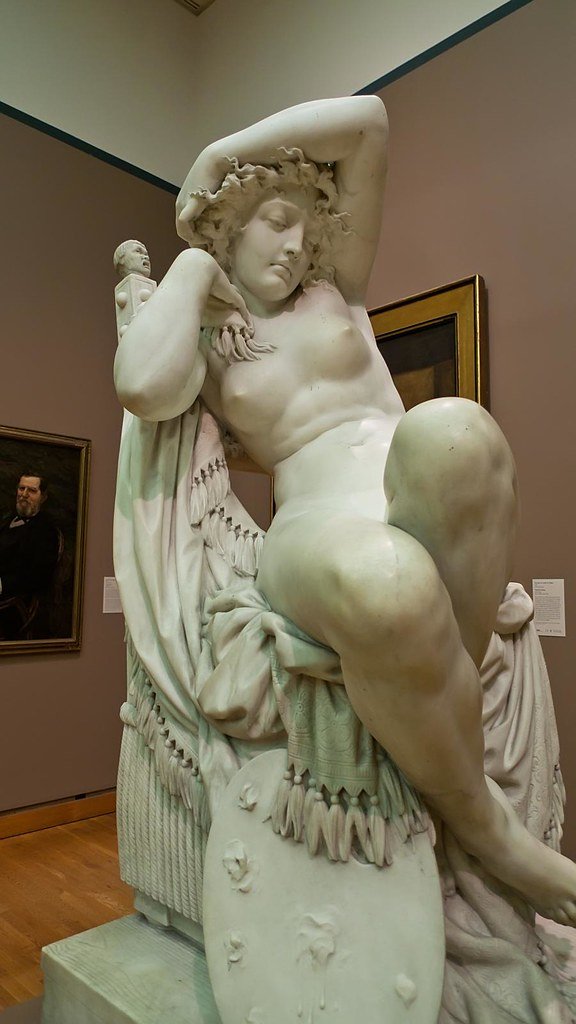Francisco de Zurbarán - "The Annunication" (1650)
Francis Frith - The Pyramids of Giza from the Southwest (1858)
Johann Melchior Molter - Concerto Pastorale in G Major
"The Girl with the Flaxen Hair" - Debussy
Overmono - "Gunk"
Winslow Homer - "A Temperance Meeting" (1874)
La Premiere Pose (1873-1876) - Howard Roberts
"Portrait of a Lady in Black" - William Merritt Chase (1911)
Little Dragon - "Little Man"
Daniel Garber - "Tanis" (1915)
Parable of the Hostages - Louise Gluck
The Greeks are sitting on the beach
wondering what to do when the war ends. No one
wants to go home, back
to that bony island; everyone wants a little more
of what there is in Troy, more
life on the edge, that sense of every day as being
packed with surprises. But how to explain this
to the ones at home to whom
fighting a war is a plausible
excuse for absence, whereas
exploring one’s capacity for diversion
is not. Well, this can be faced
later; these
are men of action, ready to leave
insight to the women and children.
Thinking things over in the hot sun, pleased
by a new strength in their forearms, which seem
more golden than they did at home, some
begin to miss their families a little,
to miss their wives, to want to see
if the war has aged them. And a few grow
slightly uneasy: what if war
is just a male version of dressing up,
a game devised to avoid
profound spiritual questions? Ah,
but it wasn’t only the war. The world had begun
calling them, an opera beginning with the war’s
loud chords and ending with the floating aria of the sirens.
There on the beach, discussing the various
timetables for getting home, no one believed
it could take ten years to get back to Ithaca;
no one foresaw that decade of insoluble dilemmas—oh unanswerable
affliction of the human heart: how to divide
the world’s beauty into acceptable
and unacceptable loves! On the shores of Troy,
how could the Greeks know
they were hostages already: who once
delays the journey is
already enthralled; how could they know
that of their small number
some would be held forever by the dreams of pleasure,
some by sleep, some by music?
- from Meadowlands
From Book 8 of "The Odyssey", translated by Emily Wilson
"describe the places,
the people, and the cities you have seen.
Which ones were wild and cruel, unwelcoming,
and which were kind to visitors, respecting
the gods? And please explain why you were crying,
sobbing your heart out when you heard him sing
what happened to the Greeks at Troy. The gods
devised and measured out this devastation,
to make a song for those in times to come."
William Glackens - "At Mouquin's" (1905)
"Love of Winter" (1914) - George Wesley Bellows
David Hockney Landscape
Fernand Lungren - "In the Cafe" (1882-1884)
Henry Ossawa Tanner - "Two Disciples at the Tomb" (1906)
Bing Crosby - "Christmas is A-Comin"
Always reminds me of our sweet cat Will





